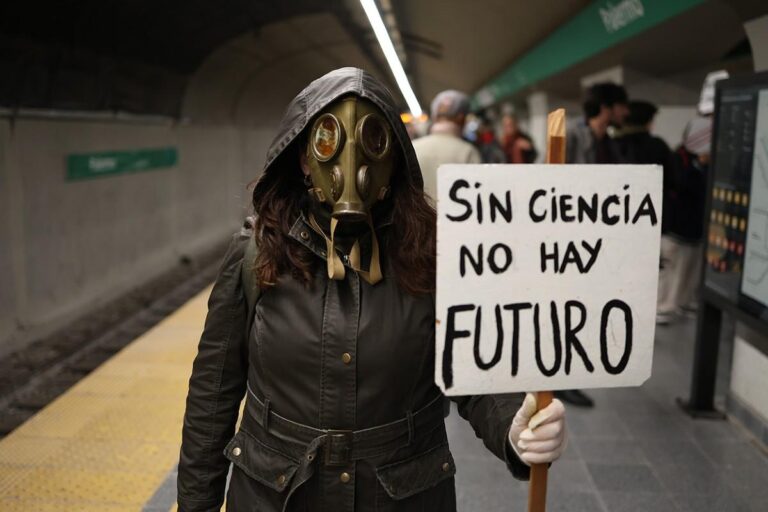Thousands of researchers in Argentina have taken to the streets in a massive protest against what they describe as “scienticide”-the systematic dismantling of scientific institutions and funding cuts by the government. The demonstrations, which have drawn attention both nationally and internationally, highlight growing concerns over the future of scientific research in the country. Scientists warn that ongoing neglect threatens not only Argentina’s innovation and development but also its global standing in the scientific community.
Scienticide Accusations Ignite Massive Demonstrations Among Argentine Scientific Community
Across Argentina, thousands of researchers have taken to the streets in an unprecedented show of solidarity, denouncing what they call “scienticide” – the systematic dismantling of the nation’s scientific institutions and funding. The protests, held in major cities like Buenos Aires, Córdoba, and Rosario, saw participants from universities, research centers, and grassroots scientific groups demanding immediate government intervention to halt budget cuts and protect the integrity of scientific progress. This movement reflects growing alarm over policies perceived as neglecting the critical role science plays in societal development and innovation.
Protesters presented a clear list of demands to policymakers, emphasizing:
- Restoration of previously slashed research grants
- Increased investment in scientific infrastructure
- Greater transparency in funding allocation
- Protection of job security for researchers and academic staff
| Year | Research Funding (USD million) | Number of Active Researchers |
|---|---|---|
| 2018 | 450 | 20,500 |
| 2022 | 320 | 18,300 |
| 2024 (projected) | 280 | 16,700 |
Funding Cuts and Policy Shifts Threaten Research Infrastructure and Innovation
Recent government decisions have drastically slashed budgets allocated to the scientific community, jeopardizing the very foundation that supports cutting-edge research and innovation across Argentina. These funding cuts, coupled with abrupt shifts in national policies, have forced numerous laboratories and research centers to scale back operations or face outright closure. With dwindling resources, scientists struggle to maintain ongoing projects, procure essential equipment, and retain talented personnel, thereby stalling progress in crucial fields such as biotechnology, environmental science, and renewable energy.
The implications of these measures extend beyond immediate financial strain. Researchers warn of a broader ripple effect that could hinder Argentina’s competitive edge on the global stage. Key concerns voiced by the community include:
- Brain Drain: Talented researchers and early-career scientists have started seeking opportunities abroad due to uncertainty and instability at home.
- Innovation Freeze: Reduced support threatens the development of new technologies and applications critical for economic diversification.
- Loss of Research Continuity: Long-term projects risk being interrupted, weakening data integrity and partnerships with international collaborators.
| Sector | Previous Budget | Current Budget | % Change | ||||||||||
|---|---|---|---|---|---|---|---|---|---|---|---|---|---|
| Biotechnology | $120M | $75M | -37.5% | ||||||||||
| Environmental Research | Experts Call for Urgent Government Action to Protect Science and Restore Confidence
Leading voices in the scientific community have issued a stern appeal to Argentinean authorities, urging immediate reforms to safeguard the nation’s research institutions from severe budget cuts and systemic neglect. The recent wave of protests by thousands of researchers across the country highlights an alarming trend described by many experts as “scienticide” – the deliberate decimation of scientific inquiry and innovation through policy failures and underinvestment. Experts emphasize that unless decisive government intervention restores funding and infrastructure, Argentina risks losing an entire generation of scientific talent and its competitive edge in the global knowledge economy. Key demands from the scientific community include:
Final ThoughtsAs the controversy surrounding Argentina’s “scienticide” continues to unfold, the large-scale protests by the country’s research community highlight deep concerns over the future of science and innovation in the region. With academics and scientists united in their demand for increased support and funding, the outcome of this struggle will be closely watched by the global scientific community, underscoring the critical role of sustained investment in research for national progress. |




